Due to the handmade nature, each piece may vary.
[Kyoto,Japan] Kyo-ware / Kiyomizu-ware
Openwork small bowl -Kumazasa by Kakouzan-kiln
Openwork small bowl -Kumazasa by Kakouzan-kiln
Low stock: 3 left
Couldn't load pickup availability
- Worldwide shipping from Kyoto
- Dispatched within 1–3 days
- Payment: Credit card or PayPal

Elegant Pottery from the Historic Gojozaka District in Kyoto
Kakouzan-kiln is located in Gojozaka, a historic area in Kyoto’s Higashiyama district known for traditional Kiyomizu-ware pottery.
This family-owned kiln has carried on the art of handmade Japanese ceramics for four generations.
Their work draws inspiration from classical Kenzan aesthetics, combining tradition with a graceful and refined vibrancy.

As if Flowers Bloomed Upon the Ceramic Surface
Each flower is meticulously hand-painted using traditional Japanese pigments, creating a softly dimensional and elegant finish.
The blossoms are rendered with delicate shading, giving them the look of flowers in full bloom.
The soft ceramic texture and gentle coloring add a warm, seasonal touch to any table setting.

A Small Bowl Full of Traditional Kyoto Charm
Infuse a hint of beauty and tradition into your everyday meals.
This handmade ceramic piece is perfect for serving appetizers or small side dishes, offering both function and elegance.
【 information 】
About "GIFT Box"
About "GIFT Box"
Gift box (paper)
Potter
Potter
Kakouzan-kiln
Dimensions
Dimensions
Edge diameter 115
Height 50 (mm)
※Due to the handmade nature, there may be individual variations.
Weight
Weight
150g
※Due to the handmade nature, there may be individual variations.
Types of Ceramics
Types of Ceramics
Pottery overglaze painting
※Details about the types of ceramics can be found here.
Usage Instructions
Usage Instructions
Do not use in microwave ovens
Dishwasher not allowed
Oven not recommended
Shipping fee
Shipping fee
[Within Japan]
Free shipping
[Outside Japan]
Flat rate: ¥1,000JPY(about $7USD)
Free international shipping on purchases over ¥20,000JPY (or the equivalent amount in other currencies).
International Shipping Notice
International Shipping Notice
For international shipments from Japan, Consumption tax in Japan is exempt, but customs duties may apply depending on the destination country.
Please note that any customs duties and import taxes are the customer's responsibility.
You will need to pay these fees based on your country's tax rates when receiving your package.
Share


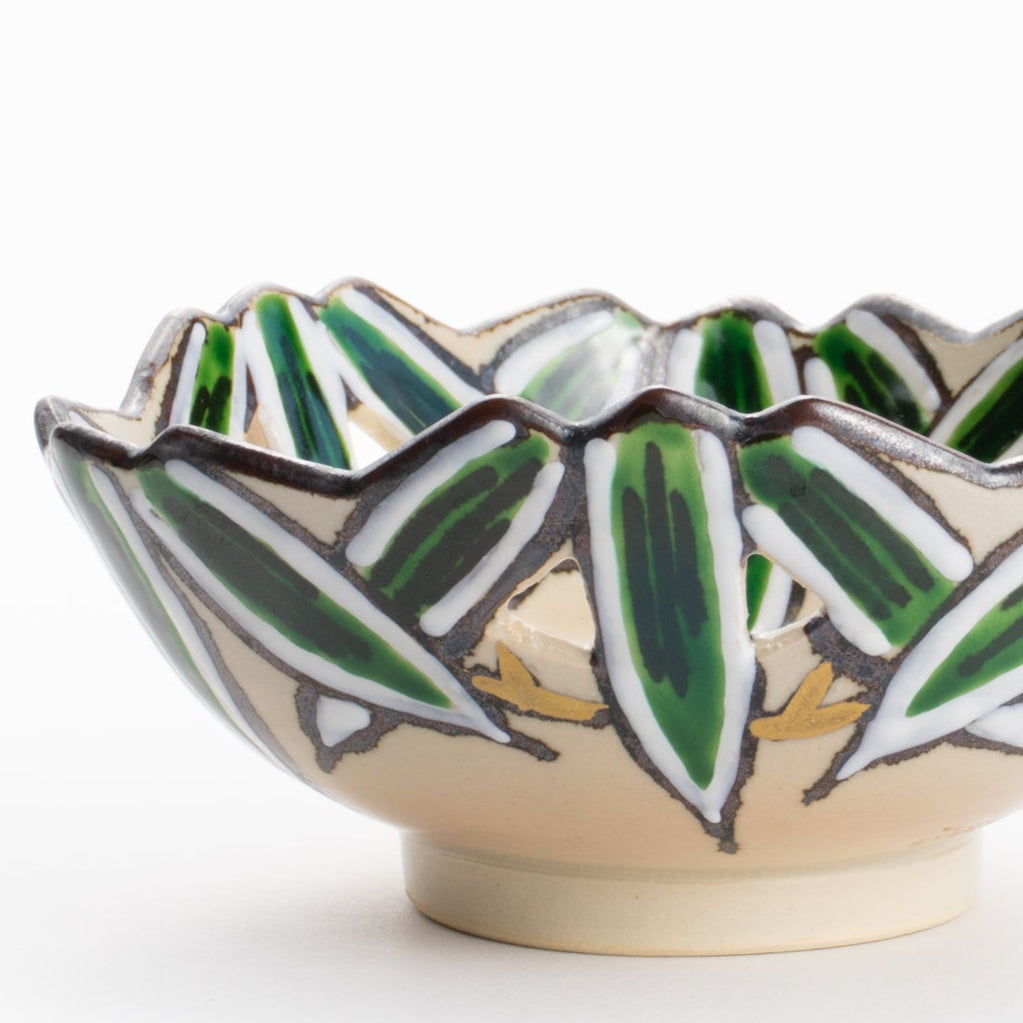


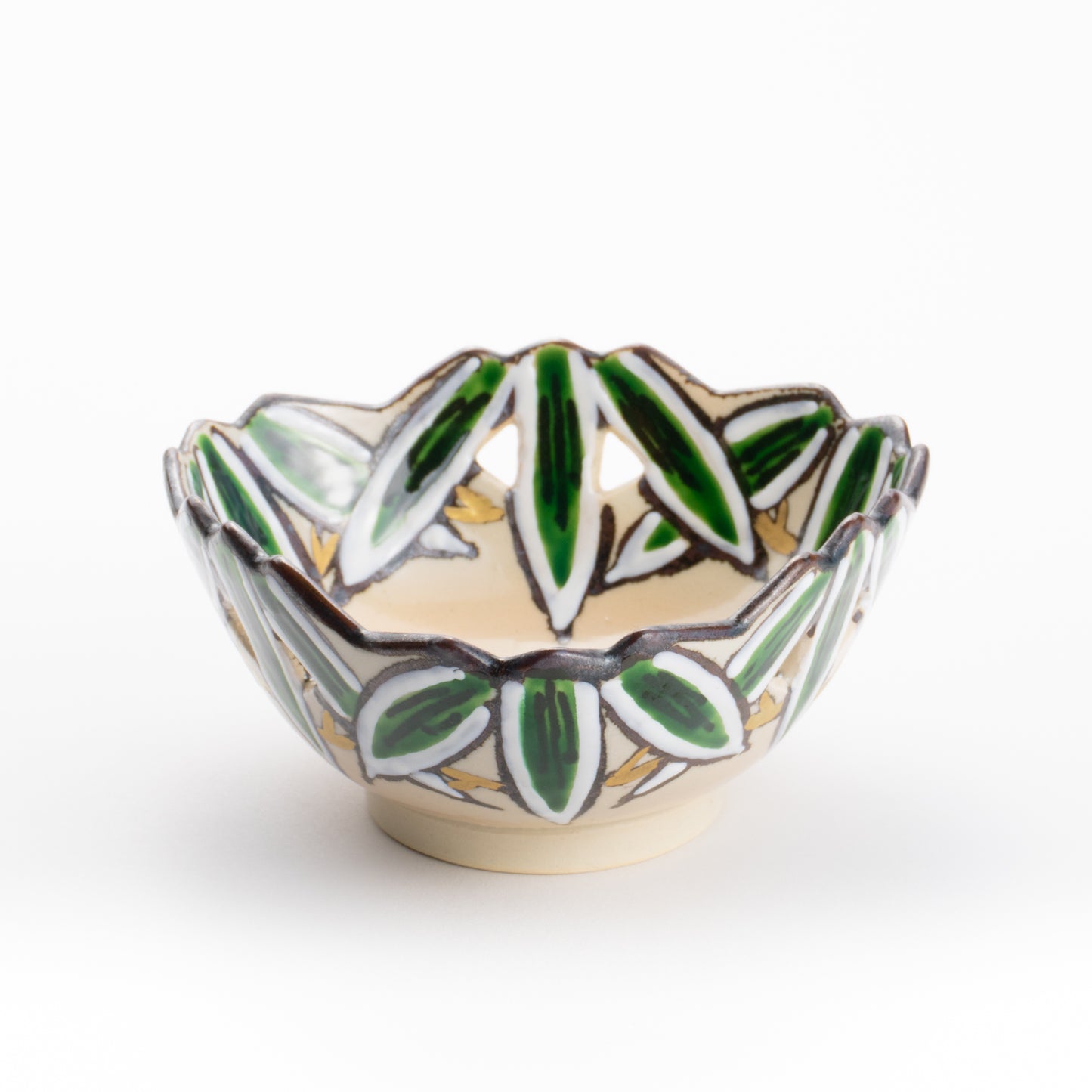
Flat Rate Shipping, Worldwide
Thanks to your support, KOTOPOTTER has celebrated its first anniversary.
We ship Kyoto pottery worldwide — international shipping is a flat ¥1,000JPY (approx. $7 USD), and free for orders over ¥20,000JPY(or the equivalent amount).
Domestic shipping within Japan is always free.
Other works by the same artist
-
Sake set -Yozakura by Kakouzan-kiln
Regular price ¥20,000 JPYRegular priceUnit price / per -
Teapot and teacup set -Sakura by Kakouzan-kiln
Regular price ¥25,000 JPYRegular priceUnit price / per -
Bread plate -Kenzan Sakura by Kakouzan-kiln
Regular price ¥12,000 JPYRegular priceUnit price / per -
Small Plate -Kenzan Sakura by Kakouzan-kiln
Regular price ¥9,000 JPYRegular priceUnit price / per -
Openwork small bowl -Kumazasa by Kakouzan-kiln
Regular price ¥9,000 JPYRegular priceUnit price / per
Related items from the same category
-
Rice bowl -Blue and white plum by Nagata studio
Regular price ¥4,000 JPYRegular priceUnit price / per -
Dessert Plate -"石畳"Ishidatami Sumi by Yotaro Takemura
Regular price ¥5,500 JPYRegular priceUnit price / per -
Stucking Bowl -Chojugiga "鳥獣戯画" by Eiho Kiln
Regular price ¥4,400 JPYRegular priceUnit price / per -
Side bowl -Relief engraved ,white porcelain by Tanaka-pottery
Regular price ¥3,080 JPYRegular priceUnit price / per -
Japanese bowl -Chrysanthemums(After Kenzan Style) by Shunzan kiln
Regular price ¥9,500 JPYRegular priceUnit price / per
KOTOPOTTER – The Specialty Store for Kyoto Pottery and Tableware
Shop with Confidence
With over 10 years of experience in Japanese pottery, the shop owner carefully selects each item and ships it with care.
Whether for everyday use or as a special gift, you can shop with peace of mind.
Discover the Story Behind Each Piece
Through our artist and kiln introduction blog, you can learn about the makers and the stories behind their work as you choose your favorite piece.

















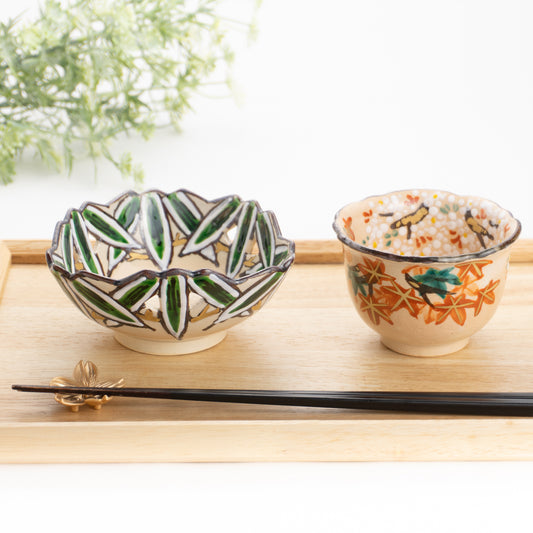

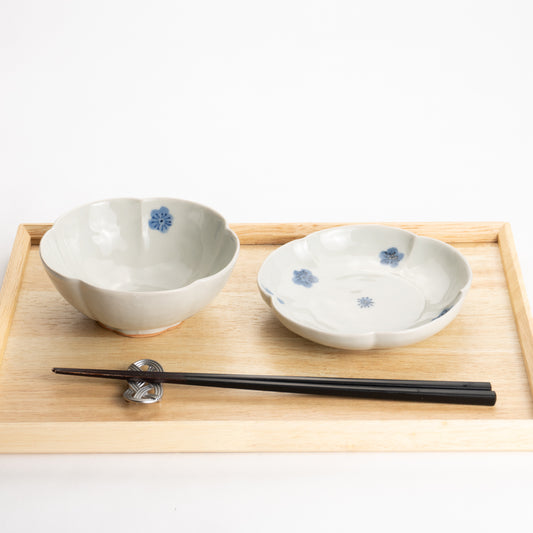

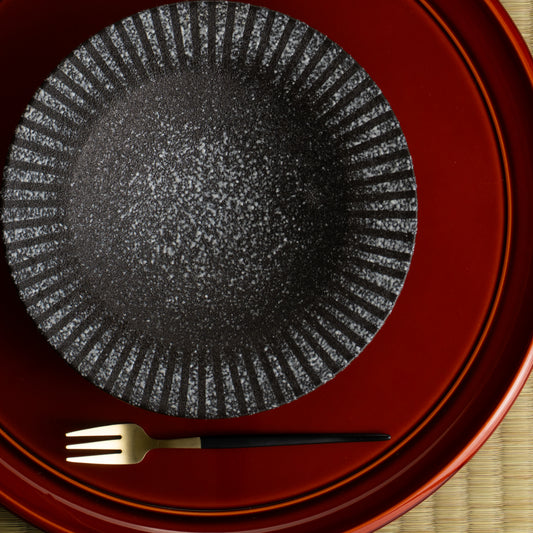



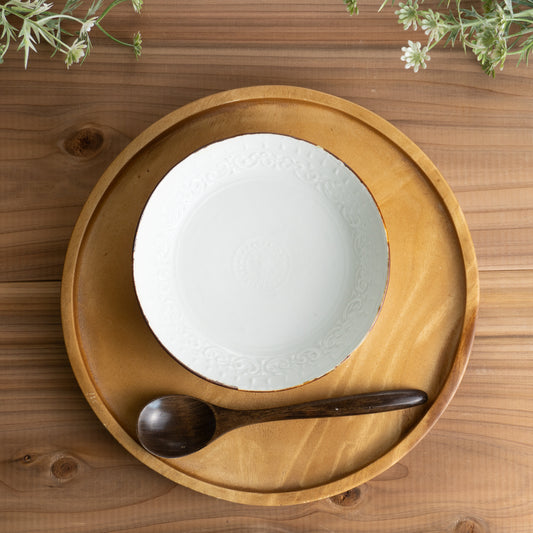

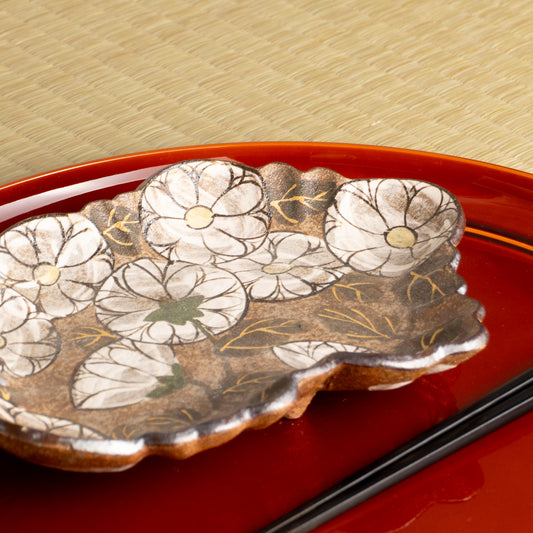


















Owner's Comment
This small bowl is ideal for light side dishes like pickled vegetables or marinated salads.
Its motif features *kumazasa* (broadleaf bamboo), a plant known in Japan as a symbol of strength and good fortune—especially in winter, when its leaf edges turn white.
Subtle openwork carvings between the leaves add a delicate sense of balance, blending visual lightness with a refined and grounded design.